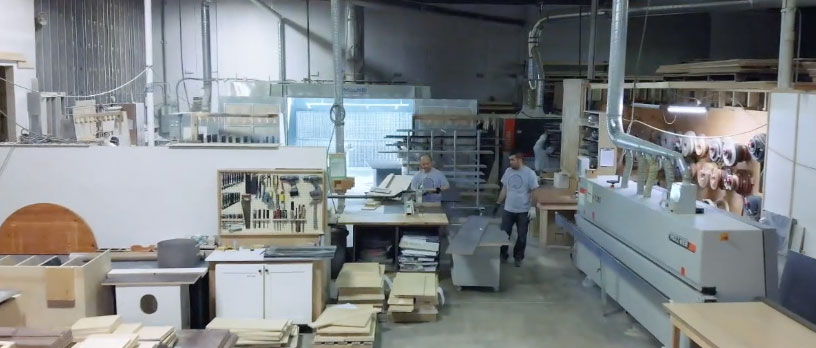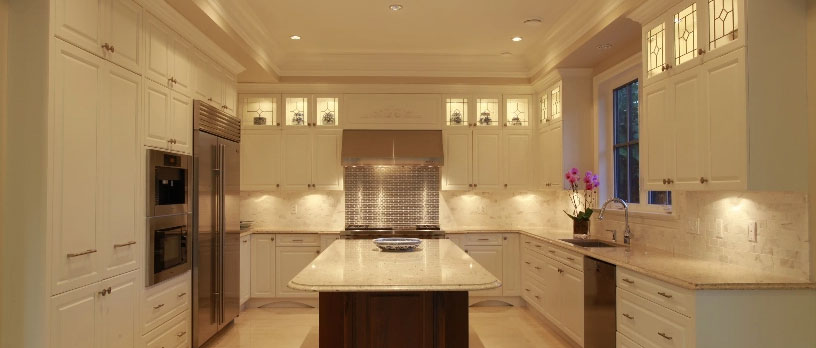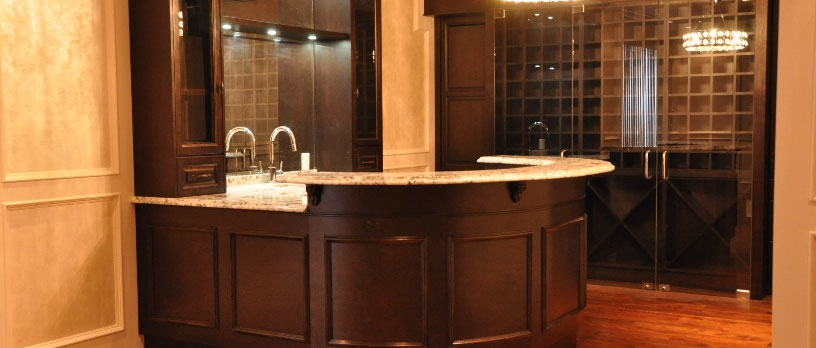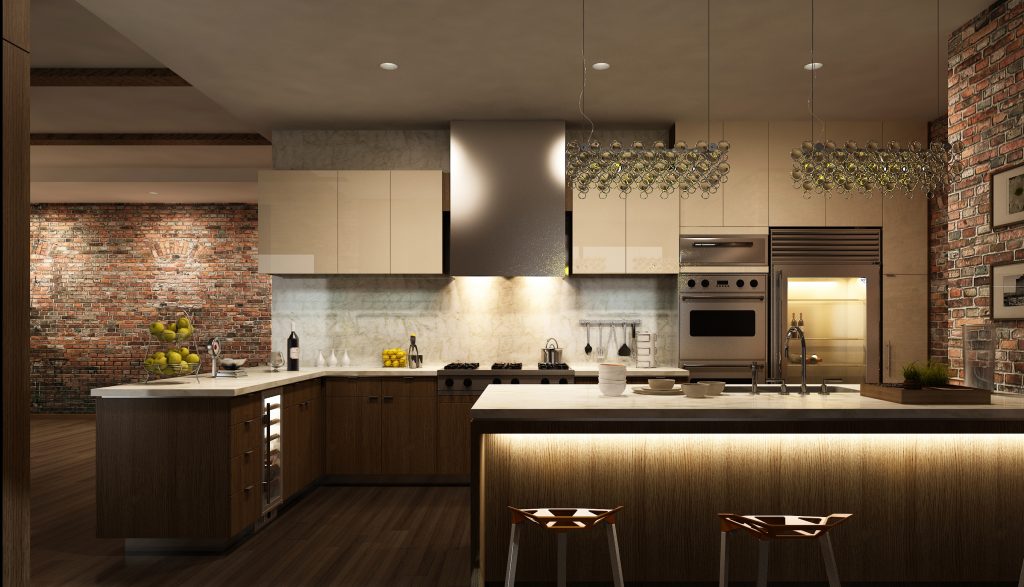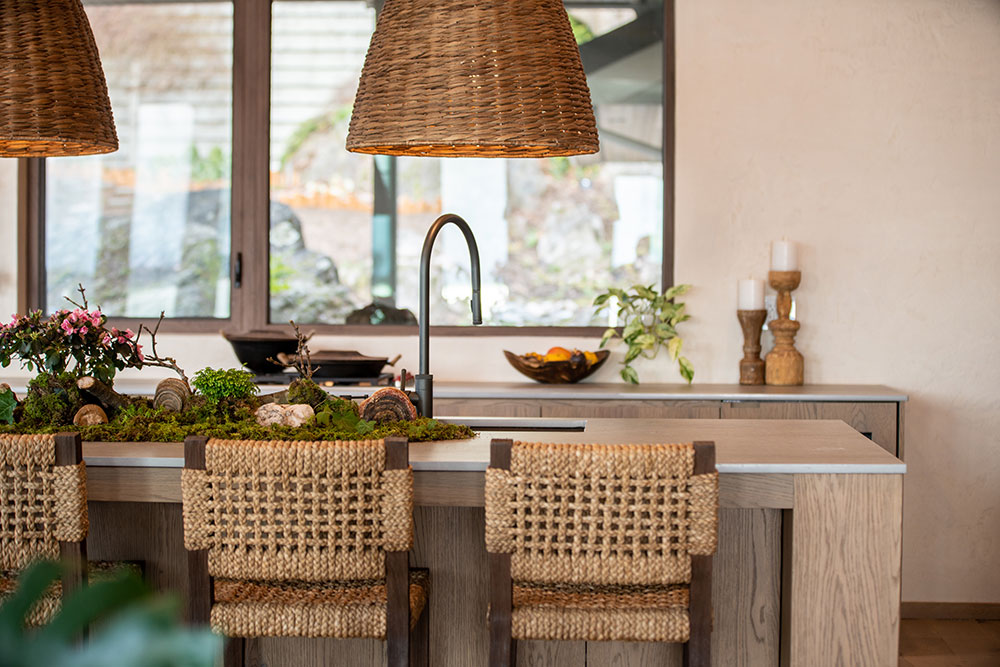
Welcome to our comprehensive guide on eco-friendly materials for your kitchen. As we become more conscious of our environmental impact, it’s crucial to make sustainable choices, especially in our homes. In this article, we’ll explore various sustainable kitchen materials for countertops, flooring, and cabinetry, and how they contribute to a more sustainable home.
The Importance of Sustainable Kitchen Materials
When it comes to designing or renovating your kitchen, choosing sustainable materials is vital. These materials are not only environmentally friendly but also tend to be healthier for your home. They often come with less toxic emissions and are better for indoor air quality. By selecting sustainable kitchen materials, you’re investing in the health of your planet and your family.
Countertops: The Heart of Sustainable Kitchens
The countertop is one of the most prominent features in any kitchen. Choosing eco-friendly materials for your countertops can significantly reduce your environmental footprint while ensuring durability and style.
Recycled Glass Countertops: A Clear Choice for Eco-Friendly Kitchens
Recycled glass countertops are a beautiful and sustainable option. Made from post-consumer or post-industrial glass, they are combined with cement or resin base. This process not only saves glass from landfills but also creates stunning, unique surfaces. These countertops are durable, easy to clean, and available in a wide range of colors and textures.
Bamboo Countertops: Combining Sustainability with Elegance
Bamboo is a highly renewable resource that grows much faster than traditional hardwoods, making it an excellent choice for eco-friendly countertops. Bamboo countertops are known for their strength, durability, and resistance to moisture. They offer a warm, natural aesthetic that can complement any kitchen design. Plus, bamboo’s natural antibacterial properties make it a hygienic choice for your cooking space.
Quartz: The Eco-Friendly Engineered Stone
Quartz countertops are an engineered product, combining natural quartz with other materials, such as resins and recycled materials. This blend results in a non-porous, durable surface that doesn’t require sealing. Quartz countertops are available in a wide range of colors and patterns, making them a versatile choice for any kitchen design.
Sustainable Flooring: Foundations of an Eco-Friendly Kitchen
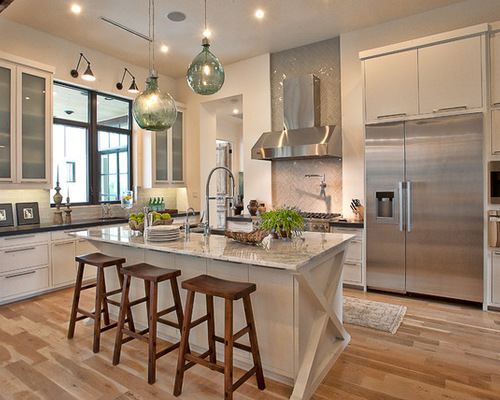
Flooring is a crucial element in your kitchen, both functionally and aesthetically. Eco-friendly flooring options not only add beauty to your kitchen but also demonstrate your commitment to the environment.
Cork Flooring: Nature’s Answer to Sustainable Flooring
Cork is a renewable, biodegradable material harvested from the bark of cork oak trees without harming the tree. It’s a natural insulator, keeping your kitchen warm in the winter and cool in the summer. Cork flooring is also soft underfoot, making it comfortable for extended cooking sessions. Its natural properties make it resistant to mold, mildew, and pests.
Linoleum: The Forgotten Eco-Friendly Flooring Gem
Linoleum is made from natural materials like linseed oil, cork dust, tree resins, and mineral pigments, all mounted on a jute or canvas backing. It’s biodegradable, durable, and comes in a variety of colors and patterns. Unlike vinyl, linoleum is free from harmful VOCs and plasticizers, making it an excellent choice for those looking for an eco-friendly and healthy flooring option.
Bamboo Flooring: Durable, Renewable, and Stylish
Bamboo flooring is another sustainable choice, known for its strength, durability, and eco-friendliness. Bamboo can be harvested without destroying the plant, allowing it to regenerate quickly. This type of flooring adds a contemporary, warm feel to your kitchen and is available in various grains and shades.
Cabinetry: Sustainable Storage Solutions
Your choice of cabinetry can significantly impact the sustainability of your kitchen. From the materials used to the manufacturing process, eco-friendly cabinetry can reduce your environmental impact while adding beauty and functionality to your space.
Reclaimed Wood Cabinets: Beauty with a Story
Reclaimed wood cabinets bring a piece of history and character to your kitchen. Wood reclaimed from old buildings, barns, or other structures is not only environmentally friendly but also adds a unique aesthetic with its aged patina and distinct markings. This approach prevents the need for new timber, reducing deforestation and waste.
Bamboo Cabinets: The Future of Eco-Friendly Cabinetry
Bamboo cabinets are becoming increasingly popular due to their sustainability, strength, and modern look. Like bamboo countertops, cabinets made from this material are durable, moisture-resistant, and available in a range of styles. They are a perfect match for homeowners seeking a fresh, contemporary, and eco-conscious kitchen design.
Low-VOC and Formaldehyde-Free Cabinets: Prioritizing Health and Environment
Opting for cabinets with low-VOC (Volatile Organic Compounds) and formaldehyde-free materials is crucial for a healthy kitchen environment. These substances, found in many traditional cabinet materials, can off-gas harmful chemicals into your home. Cabinets labeled as low-VOC or formaldehyde-free are safer for your family and the planet.
Eco-Friendly Kitchen Accessories and Fixtures
The details matter when it comes to creating a sustainable kitchen. Choosing eco-friendly kitchen accessories and fixtures can help reduce your environmental impact further.
Sustainable Kitchenware: From Utensils to Dinnerware
Opt for kitchenware made from sustainable materials like bamboo, recycled glass, or biodegradable plastics. These options are not only environmentally friendly but also add a touch of natural beauty to your kitchen. From bamboo cutting boards to ceramic dishes made from recycled materials, there are numerous ways to incorporate sustainable practices into every aspect of your kitchen.
Water-Efficient Faucets: Conserving Resources in Style
Installing water-efficient faucets is an easy way to reduce your water usage. Look for faucets with aerators or those labeled as low-flow, which can significantly cut down on water waste without sacrificing performance. Many modern designs incorporate these features seamlessly, ensuring that your kitchen remains stylish and sustainable.
The Role of Energy-Efficient Appliances in a Sustainable Kitchen
Investing in energy-efficient appliances is a crucial aspect of creating a sustainable kitchen. These appliances, such as refrigerators, dishwashers, and ovens, are designed to use less electricity and water, reducing your carbon footprint and utility bills.
Choosing Energy Star Rated Appliances
Look for appliances with the Energy Star label, which signifies they meet energy efficiency guidelines set by the U.S. Environmental Protection Agency. These appliances can use up to 50% less energy and water than traditional models, making a significant impact on your energy consumption and costs.
The Benefits of Energy-Efficient Cooking Appliances
Energy-efficient cooking appliances, such as induction cooktops, use less energy and cook food faster, making them an excellent choice for eco-conscious homeowners. They also offer improved safety and easy cleanup.
Incorporating Natural Light and Eco-Friendly Lighting Solutions
Proper lighting is essential in a kitchen, not only for functionality but also for creating a pleasant atmosphere. Making sustainable choices in lighting can greatly reduce your energy consumption.
Maximizing Natural Light
Design your kitchen to maximize natural light. Consider larger windows or skylights to reduce the need for artificial lighting during the day. Natural light can also make your kitchen feel more spacious and welcoming.
Choosing LED Lighting
When artificial lighting is necessary, opt for LED bulbs. They are more energy-efficient than traditional incandescent bulbs, last longer, and are available in a range of colors and intensities to suit any kitchen design.
Sustainable Kitchen Design: A Holistic Approach
Creating a sustainable kitchen involves more than just individual material choices; it’s about adopting a holistic approach to design. This means considering how each element interacts with the others and how they collectively contribute to a more sustainable and harmonious kitchen environment.
The Role of Color and Texture in Sustainable Design
Choose colors and textures that not only appeal to your style but also promote a sense of calm and balance. Natural hues and materials can create a warm and inviting space, encouraging a more mindful and sustainable lifestyle. Textures also play a significant role. Incorporate elements like reclaimed wood, natural stone, or bamboo to add depth and character to your kitchen. These materials not only bring an eco-friendly aspect to your design but also create a tactile experience that enhances the overall feel of the space.
Integrating Indoor Plants
Incorporating indoor plants into your kitchen not only adds a natural touch but also improves air quality. Plants like herbs can be both decorative and functional, providing fresh ingredients for your cooking that are readily available. Consider creating a small kitchen herb garden on a windowsill or hanging planters with aromatic herbs like basil, mint, or rosemary.
Designing for Longevity and Flexibility
Design your kitchen with longevity in mind. Choose high-quality materials and timeless designs that you will love for years to come. This approach reduces the need for frequent renovations, lowering your environmental impact over time. Think about flexibility in design as well – a kitchen that can adapt to your changing needs over time is more sustainable than one that needs to be completely redone to accommodate different life stages. Modular designs, adjustable shelving, and multi-functional spaces can all contribute to a kitchen that evolves with you, ensuring its longevity and reducing the need for resource-intensive updates.
Recycling and Composting: Essential Practices in a Sustainable Kitchen
Implementing recycling and composting systems in your kitchen is a practical step toward sustainability. These systems help reduce waste and can provide nutrient-rich compost for your garden.
Setting Up an Effective Recycling System
Designate areas in your kitchen for recycling bins to make the process convenient and efficient. Educate your family about what can be recycled to maximize your efforts, and have the correct recycling bins available for the materials.
The Benefits of Composting Kitchen Scraps
Composting kitchen scraps, like vegetable peels and coffee grounds, can significantly reduce your household waste. Compost can be used in your garden, enriching the soil and promoting healthy plant growth, whilst also helping the environment.
Supporting Sustainable Brands and Local Craftsmanship
When selecting materials and appliances for your kitchen, consider supporting sustainable brands and local craftsmen. These choices often mean higher quality, more unique designs, and a smaller carbon footprint due to reduced transportation distances.
The Impact of Choosing Local and Sustainable Brands
Local and sustainable brands are more likely to use eco-friendly practices and materials. By supporting them, you contribute to the local economy and help promote sustainable practices in the industry, such as sourcing your materials locally to reduce your carbon footprint.
Custom Solutions from Local Craftsmen
Working with local craftsmen for custom cabinetry or countertops can result in a kitchen that is tailored to your needs and preferences, reducing waste and promoting sustainability.
Embracing Technology for a Greener Kitchen
In the age of smart homes, incorporating technology into your kitchen can significantly contribute to its sustainability. Smart appliances, such as energy-efficient refrigerators and ovens with eco-friendly modes, optimize energy and water usage, reducing your environmental footprint. ILoveKitchen’s stays ahead of the curve by offering a range of technologically advanced options that can be seamlessly integrated into your sustainable kitchen design. From smart lighting systems that adjust based on natural light to intelligent faucets that conserve water, these innovations not only make your kitchen more eco-friendly but also add a layer of convenience and modernity to your daily life.
The Value of Sustainable Renovation Practices
When renovating your kitchen, the approach and practices you adopt are as important as the materials you choose. ILoveKitchen’s emphasizes the importance of sustainable renovation practices, such as minimizing construction waste, recycling old materials, and ensuring efficient use of resources. By choosing a company that values these practices, you contribute to reducing the overall environmental impact of your renovation project. Sustainable renovation not only involves selecting eco-friendly materials but also entails responsible disposal and recycling of old kitchen components, a commitment that ILoveKitchen’s proudly upholds.
Conclusion: Your Sustainable Kitchen Journey with ILoveKitchen’s
As you embark on your journey to create a sustainable kitchen, consider the expertise and offerings of ILoveKitchen’s Kitchen Renovation Vancouver. Their commitment to quality, sustainability, and customer satisfaction makes them an ideal partner in this endeavor. ILoveKitchen’s understands the importance of eco-friendly materials and practices, aligning perfectly with the principles discussed in this article. From energy-efficient appliances to sustainable materials for countertops, flooring, and cabinetry, they have the expertise to help you design a kitchen that is not only aesthetically pleasing but also environmentally conscious. With ILoveKitchen’s, you can achieve a kitchen that truly embodies your commitment to sustainability, combining functionality, style, and eco-friendly design. Let ILoveKitchen’s guide you in making choices that benefit both your home and the planet, ensuring that your kitchen is a testament to your dedication to a greener, more sustainable lifestyle.
Also see our other services: custom kitchen cabinet , bathroom renovation vancouver

